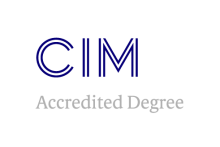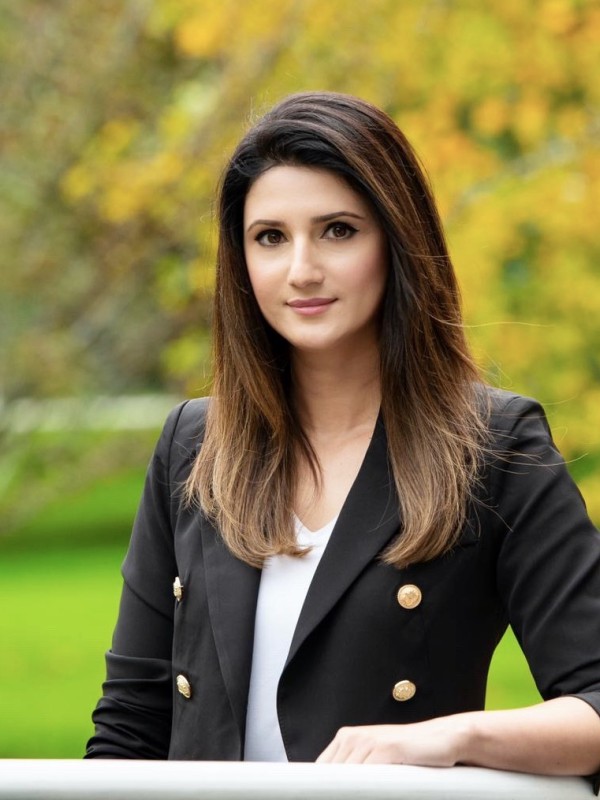
- Strategic Marketing
MSc — 2025 entry Strategic Marketing
Creative, client-facing, analytical, practical or more: whatever marketing specialism you aspire to, our MSc Strategic Marketing aims to equip you with the fundamental concepts, models, digital tools and processes that are necessary for gaining sustainable competitive advantage in the marketplace.
Why choose
this course?
- As a strategic marketing student, you’ll be based in the Surrey Business School and be part of a vibrant community, focused on improving business practice and creating a sustainable and positive change.
- You'll gain comprehensive strategic, digital marketing and social media knowledge and skills, which will give you advanced understanding of contemporary marketing principles.
- Digital and strategic marketing skills are vital for marketing in a data-driven world, and this course will give you the knowledge and skills you need to make informed marketing decisions in today’s dynamic marketing world.
- You will develop as an agile and entrepreneurial marketing professional and will be an asset for future employers.
- The School is renowned for its:
- World-class teaching and research
- Strong focus on entrepreneurship and enterprise
- Vibrant and diverse community
- Excellent career prospects.
Statistics
Fantastic graduate prospects
94% of our Surrey Business School postgraduate students go on to employment or further study (Graduate Outcomes 2024, HESA)
Top 75 in the world
We’re ranked in the top 75 for Business Administration and top 100 for Management in the Shanghai Global Subject Rankings 2023
1st for student satisfaction
Surrey Business School is ranked 1st in the UK for Marketing in the Postgraduate Taught Experience Survey (PTES) 2023, with an overall satisfaction score of 93% (CAH Group 3)
Accreditation


What you will study
At Surrey Business School, we emphasise innovation and leadership, and provide an in-depth and hands-on approach to teaching. Our MSc Strategic Marketing builds on the established research strengths and teaching capabilities of the Department of Marketing which will equip you with the attributes, ways of thinking and behaviour of a contemporary marketing professional.
Students will learn advanced analytics techniques adopted by the leading organisations to assess and manage customer service experience.
We’ll bring out your creativity and problem-solving abilities and develop your skills as a successful marketer. We’ll teach you the ‘ins’ and ‘outs’ of marketing strategies, processes and techniques. You’ll also learn about communication, digital and social media marketing, marketing research, and customer-facing functions.
You’ll study a range of core concepts from other management disciplines, including innovation management. You can tailor our course to suit your career aspirations by choosing from distinctive optional modules, covering different topics such as global strategy, marketing analytics and more.
Professional recognition
MSc - Association to Advance Collegiate Schools of Business (AACSB)
Accredited by the Association to Advance Collegiate Schools of Business (AACSB).
MSc - Chartered Institute of Marketing (CIM)
Accredited by The Chartered Institute of Marketing (CIM) for the purpose of gaining CIM qualifications through the Graduate Gateway.
Add Chartered Institute of Marketing (CIM) qualifications to your masters
Our course is accredited by the Chartered Institute of Marketing. If you want to enrol with the Chartered Institute of Marketing as an affiliate, you can study CIM qualifications without having to complete all the modules. For most CIM qualifications, you'll only need to take two assessments instead of the usual three. Therefore, you'll add an individual additional award to supplement your degree. There is a fee to join CIM.
You'll study our course for two semesters. There is also a dissertation module on the pathways.
The structure of our programmes follows clear educational aims that are tailored to each programme. These are all outlined in the programme specifications which include further details such as the learning outcomes:
Modules
Modules listed are indicative, reflecting the information available at the time of publication. Modules are subject to teaching availability, student demand and/or class size caps.
The University operates a credit framework for all taught programmes based on a 15-credit tariff, meaning all modules are comprised of multiples of 15 credits, up to a maximum of 120 credits.
Course options
Year 1
Semester 1
Compulsory
During the module, students consider, discuss, and evaluate concepts, models, digital tools and processes that are necessary for gaining sustainable competitive advantage in the marketplace. Emphasis is placed upon identifying key strategic issues, competitive positioning and strategy formulation. Marketing strategies are examined with a particular focus on environmental analysis, segmentation, targeting, positioning (STP) and strategic marketing planning.
View full module detailsSustainable marketing plays a vital role in promoting sustainability values within businesses which is of paramount importance in todays world such as environmental considerations, human welfare and responsible consumption. The module provides an understanding and critical assessment of the theoretical concepts of sustainable marketing and their application to real marketing cases to enable students to become informed marketing managers.
View full module detailsThis module commences with introducing the principles of services marketing. The services sector, such as telecommunications, financial services, hospitality, transportation services, healthcare, and professional services, accounts for over three-quarters of GDP and employment in most developed countries. In light of the growing importance of services in local and global economies, it becomes crucial to study and understand the functionality of service offerings. This module will explore the distinctive characteristics of services and explain how these characteristics affect the marketing approaches used by firms' including challenges involved in controlling service quality and managing customer experience. The module also covers the principles of relationship marketing combined with the meaning and application of services and relationship marketing across different service contexts. This module also assesses the impact of emerging technologies and AI on the services marketing. It also introduces advanced analytics technique employed by leading companies to assess and manage their customer's service experience. Additionally, the module focuses on real-world business scenarios providing students with an opportunity to examine management decision-making and enhances a wide range of study skills, such as independent research, analytical skills, as well as critical thinking.
View full module detailsThe main aim of this module is to get students ready for conducting professional and academic (dissertation) research. Whereas all stages of a research process are covered in this module, the clear focus is on conducting qualitative and quantitative studies to support marketing decisions in response to business opportunities or problems. More specifically, this module offers the relevant framework for making the informed marketing decisions. The module is organized around the stages of a marketing research project (e.g. problem definition, design, data collection, data analysis, and documentation). The course will be of particular value for students planning careers in marketing research and marketing consulting.
View full module detailsSemester 2
Compulsory
This module provides students practical and theoretical knowledge of International Marketing in contexts, operations, and strategies. It aims to develop students’ critical thinking and ability to apply and adapt theories to cases in international marketing.
View full module detailsConsumer Behaviour is evident in everyday life, therefore knowledge and understanding of this subject can be beneficial to personal decision-making as well as to marketing and strategy formulation, both in offline and online environments. The module Perspectives on Consumer Behaviour deals with a range of theoretical, practical techniques in understanding and researching consumer consumption behaviour and how such an understanding can be used to create successful and viable marketing strategies. This module gives students the opportunity to explore theories and leading-edge research findings and apply knowledge by conducting small group discussion and/or activities. Thus, reflective, and critical applications of relevant behavioural, cognitive, and socio-cultural approaches to consumption are discussed.
View full module detailsThe main aim of this module is to get students ready for conducting professional and academic (dissertation) research. Whereas all stages of a research process are covered in this module, the clear focus is on conducting qualitative and quantitative studies to support marketing decisions in response to business opportunities or problems. More specifically, this module offers the relevant framework for making the informed marketing decisions. The module is organized around the stages of a marketing research project (e.g. problem definition, design, data collection, data analysis, and documentation). The course will be of particular value for students planning careers in marketing research and marketing consulting.
View full module detailsOptional
In an increasingly globalised business and business environment, it is necessary for management students to learn how to strategies internationally viable global strategies. This module covers a variety of topics such as global strategic analysis, global strategy formulation, and global strategy execution. Strategy-related subjects shape at least half of the contents in this programme.
View full module detailsThis module introduces students to the concept and current practices in marketing analytics. Technology advances of the past decade have dramatically enhanced marketers' means of collecting and analysing data to measure the effectiveness of their marketing strategies. This module is designed to provide students with an overview of state-of-the-art marketing analytics practices that guide marketing executives in their strategic decisions. The module focuses on introducing students to key analytical techniques with an emphasis on interpreting results and generating strategic insights for marketing decision-making. The course will be of particular value to students planning careers in marketing and management consulting. The course is designed for students with a basic understanding of univariate and bivariate statistics. Addressing different learning styles, the following teaching methods are applied in this course: Pre-readings, Lectures, Class Exercises, Class Discussions, and Real World Cases/Industry Insights.
View full module detailsSocial media marketing is an emerging and rapidly developing discipline with substantive changes periodically occurring in industry and academic research. While much of social media marketing is focused on the promotional mix, it also is used for customer care, research and more. The field has shifted from one focused on the influence of individual consumers in social channels to one including bots, AI, and influencers. This module provides students with both academic (theories and concepts) and practical grounding underlying strategic decisions for the use of social media for marketing and the implications of the emerging developments in the area. Discussions, study cases and examples will bring these theories to life.
View full module detailsStudents put theory into practice for digital skills by working in a group project with designated companies around a business challenge. The business challenge relates to key skills in the Digital Economy such as digital marketing. In the module, students develop an understanding of key topics related to the theory before applying the key skills. We bring in outside speakers from industry to create an authentic learning experience. For the project, students have two points of assessment to support the learning. Students develop other business skills such as problem-solving, project management, collaboration and resilience which they participate in the project. This supports programme objectives to develop an understanding of theory and practice related to Digital Economy as well as to develop skills relevant for Entrepreneurship.
View full module detailsSemester 1 & 2
Compulsory
The dissertation is compulsory to all the three MSc Marketing programmes; International Marketing (IM), Strategic Management (SM) and Digital Marketing (DM). This module provides an opportunity for a sustained period of independent study and research. It allows students to concentrate on marketing and retail topics that are of particular interest to them. It also gives an opportunity for students to work independently with individual supervisors. The dissertation follows the standard academic pattern of identifying a topic arising from a gap in the literature and developing a methodology to explore this area in depth. The module will be run by the Marketing Department, and as such the students will have the opportunity to work in a smaller group and will receive better feedback and personal attention, thus enhancing student satisfaction and increasing progress in learning and understanding.
View full module detailsOptional modules for Year 1 (full-time) - FHEQ Level 7
For further information regarding programme structure and module selection, please refer to the course catalogue.
Year 1
Semester 1
Compulsory
During the module, students consider, discuss, and evaluate concepts, models, digital tools and processes that are necessary for gaining sustainable competitive advantage in the marketplace. Emphasis is placed upon identifying key strategic issues, competitive positioning and strategy formulation. Marketing strategies are examined with a particular focus on environmental analysis, segmentation, targeting, positioning (STP) and strategic marketing planning.
View full module detailsSustainable marketing plays a vital role in promoting sustainability values within businesses which is of paramount importance in todays world such as environmental considerations, human welfare and responsible consumption. The module provides an understanding and critical assessment of the theoretical concepts of sustainable marketing and their application to real marketing cases to enable students to become informed marketing managers.
View full module detailsThis module commences with introducing the principles of services marketing. The services sector, such as telecommunications, financial services, hospitality, transportation services, healthcare, and professional services, accounts for over three-quarters of GDP and employment in most developed countries. In light of the growing importance of services in local and global economies, it becomes crucial to study and understand the functionality of service offerings. This module will explore the distinctive characteristics of services and explain how these characteristics affect the marketing approaches used by firms' including challenges involved in controlling service quality and managing customer experience. The module also covers the principles of relationship marketing combined with the meaning and application of services and relationship marketing across different service contexts. This module also assesses the impact of emerging technologies and AI on the services marketing. It also introduces advanced analytics technique employed by leading companies to assess and manage their customer's service experience. Additionally, the module focuses on real-world business scenarios providing students with an opportunity to examine management decision-making and enhances a wide range of study skills, such as independent research, analytical skills, as well as critical thinking.
View full module detailsThe main aim of this module is to get students ready for conducting professional and academic (dissertation) research. Whereas all stages of a research process are covered in this module, the clear focus is on conducting qualitative and quantitative studies to support marketing decisions in response to business opportunities or problems. More specifically, this module offers the relevant framework for making the informed marketing decisions. The module is organized around the stages of a marketing research project (e.g. problem definition, design, data collection, data analysis, and documentation). The course will be of particular value for students planning careers in marketing research and marketing consulting.
View full module detailsSemester 2
Compulsory
This module provides students practical and theoretical knowledge of International Marketing in contexts, operations, and strategies. It aims to develop students’ critical thinking and ability to apply and adapt theories to cases in international marketing.
View full module detailsConsumer Behaviour is evident in everyday life, therefore knowledge and understanding of this subject can be beneficial to personal decision-making as well as to marketing and strategy formulation, both in offline and online environments. The module Perspectives on Consumer Behaviour deals with a range of theoretical, practical techniques in understanding and researching consumer consumption behaviour and how such an understanding can be used to create successful and viable marketing strategies. This module gives students the opportunity to explore theories and leading-edge research findings and apply knowledge by conducting small group discussion and/or activities. Thus, reflective, and critical applications of relevant behavioural, cognitive, and socio-cultural approaches to consumption are discussed.
View full module detailsOptional
In an increasingly globalised business and business environment, it is necessary for management students to learn how to strategies internationally viable global strategies. This module covers a variety of topics such as global strategic analysis, global strategy formulation, and global strategy execution. Strategy-related subjects shape at least half of the contents in this programme.
View full module detailsThis module introduces students to the concept and current practices in marketing analytics. Technology advances of the past decade have dramatically enhanced marketers' means of collecting and analysing data to measure the effectiveness of their marketing strategies. This module is designed to provide students with an overview of state-of-the-art marketing analytics practices that guide marketing executives in their strategic decisions. The module focuses on introducing students to key analytical techniques with an emphasis on interpreting results and generating strategic insights for marketing decision-making. The course will be of particular value to students planning careers in marketing and management consulting. The course is designed for students with a basic understanding of univariate and bivariate statistics. Addressing different learning styles, the following teaching methods are applied in this course: Pre-readings, Lectures, Class Exercises, Class Discussions, and Real World Cases/Industry Insights.
View full module detailsSocial media marketing is an emerging and rapidly developing discipline with substantive changes periodically occurring in industry and academic research. While much of social media marketing is focused on the promotional mix, it also is used for customer care, research and more. The field has shifted from one focused on the influence of individual consumers in social channels to one including bots, AI, and influencers. This module provides students with both academic (theories and concepts) and practical grounding underlying strategic decisions for the use of social media for marketing and the implications of the emerging developments in the area. Discussions, study cases and examples will bring these theories to life.
View full module detailsStudents put theory into practice for digital skills by working in a group project with designated companies around a business challenge. The business challenge relates to key skills in the Digital Economy such as digital marketing. In the module, students develop an understanding of key topics related to the theory before applying the key skills. We bring in outside speakers from industry to create an authentic learning experience. For the project, students have two points of assessment to support the learning. Students develop other business skills such as problem-solving, project management, collaboration and resilience which they participate in the project. This supports programme objectives to develop an understanding of theory and practice related to Digital Economy as well as to develop skills relevant for Entrepreneurship.
View full module detailsSemester 1 & 2
Compulsory
The dissertation is compulsory to all the three MSc Marketing programmes; International Marketing (IM), Strategic Management (SM) and Digital Marketing (DM). This module provides an opportunity for a sustained period of independent study and research. It allows students to concentrate on marketing and retail topics that are of particular interest to them. It also gives an opportunity for students to work independently with individual supervisors. The dissertation follows the standard academic pattern of identifying a topic arising from a gap in the literature and developing a methodology to explore this area in depth. The module will be run by the Marketing Department, and as such the students will have the opportunity to work in a smaller group and will receive better feedback and personal attention, thus enhancing student satisfaction and increasing progress in learning and understanding.
View full module detailsAcross academic years
Compulsory
The module is available as an alternative to the Placement module offered on the MSc programme that a student is enrolled in. The Study Abroad module supports students’ academic, personal and professional development as global citizens preparing for a borderless career that requires cross-cultural awareness, ability to collaborate with international partners and navigate different business systems and complex international work arrangements. The Study Abroad module is concerned with holistic academic and non-academic learning. Additionally, the module aims to enable students to evidence and evaluate their study abroad experiences and transfer that learning to other situations.
View full module detailsOptional modules for Year 1 (full-time with Study Abroad - 15 months) - FHEQ Level 7
For further information regarding programme structure and module selection, please refer to the course catalogue.
Year 1
Semester 1
Compulsory
This module commences with introducing the principles of services marketing. The services sector, such as telecommunications, financial services, hospitality, transportation services, healthcare, and professional services, accounts for over three-quarters of GDP and employment in most developed countries. In light of the growing importance of services in local and global economies, it becomes crucial to study and understand the functionality of service offerings. This module will explore the distinctive characteristics of services and explain how these characteristics affect the marketing approaches used by firms' including challenges involved in controlling service quality and managing customer experience. The module also covers the principles of relationship marketing combined with the meaning and application of services and relationship marketing across different service contexts. This module also assesses the impact of emerging technologies and AI on the services marketing. It also introduces advanced analytics technique employed by leading companies to assess and manage their customer's service experience. Additionally, the module focuses on real-world business scenarios providing students with an opportunity to examine management decision-making and enhances a wide range of study skills, such as independent research, analytical skills, as well as critical thinking.
View full module detailsDuring the module, students consider, discuss, and evaluate concepts, models, digital tools and processes that are necessary for gaining sustainable competitive advantage in the marketplace. Emphasis is placed upon identifying key strategic issues, competitive positioning and strategy formulation. Marketing strategies are examined with a particular focus on environmental analysis, segmentation, targeting, positioning (STP) and strategic marketing planning.
View full module detailsSemester 2
Compulsory
This module provides students practical and theoretical knowledge of International Marketing in contexts, operations, and strategies. It aims to develop students’ critical thinking and ability to apply and adapt theories to cases in international marketing.
View full module detailsConsumer Behaviour is evident in everyday life, therefore knowledge and understanding of this subject can be beneficial to personal decision-making as well as to marketing and strategy formulation, both in offline and online environments. The module Perspectives on Consumer Behaviour deals with a range of theoretical, practical techniques in understanding and researching consumer consumption behaviour and how such an understanding can be used to create successful and viable marketing strategies. This module gives students the opportunity to explore theories and leading-edge research findings and apply knowledge by conducting small group discussion and/or activities. Thus, reflective, and critical applications of relevant behavioural, cognitive, and socio-cultural approaches to consumption are discussed.
View full module detailsOptional modules for Year 1 (part-time) - FHEQ Level 7
For further information regarding programme structure and module selection, please refer to the course catalogue.
Year 2
Semester 1
Compulsory
Sustainable marketing plays a vital role in promoting sustainability values within businesses which is of paramount importance in todays world such as environmental considerations, human welfare and responsible consumption. The module provides an understanding and critical assessment of the theoretical concepts of sustainable marketing and their application to real marketing cases to enable students to become informed marketing managers.
View full module detailsThe main aim of this module is to get students ready for conducting professional and academic (dissertation) research. Whereas all stages of a research process are covered in this module, the clear focus is on conducting qualitative and quantitative studies to support marketing decisions in response to business opportunities or problems. More specifically, this module offers the relevant framework for making the informed marketing decisions. The module is organized around the stages of a marketing research project (e.g. problem definition, design, data collection, data analysis, and documentation). The course will be of particular value for students planning careers in marketing research and marketing consulting.
View full module detailsSemester 2
Optional
In an increasingly globalised business and business environment, it is necessary for management students to learn how to strategies internationally viable global strategies. This module covers a variety of topics such as global strategic analysis, global strategy formulation, and global strategy execution. Strategy-related subjects shape at least half of the contents in this programme.
View full module detailsThis module introduces students to the concept and current practices in marketing analytics. Technology advances of the past decade have dramatically enhanced marketers' means of collecting and analysing data to measure the effectiveness of their marketing strategies. This module is designed to provide students with an overview of state-of-the-art marketing analytics practices that guide marketing executives in their strategic decisions. The module focuses on introducing students to key analytical techniques with an emphasis on interpreting results and generating strategic insights for marketing decision-making. The course will be of particular value to students planning careers in marketing and management consulting. The course is designed for students with a basic understanding of univariate and bivariate statistics. Addressing different learning styles, the following teaching methods are applied in this course: Pre-readings, Lectures, Class Exercises, Class Discussions, and Real World Cases/Industry Insights.
View full module detailsSocial media marketing is an emerging and rapidly developing discipline with substantive changes periodically occurring in industry and academic research. While much of social media marketing is focused on the promotional mix, it also is used for customer care, research and more. The field has shifted from one focused on the influence of individual consumers in social channels to one including bots, AI, and influencers. This module provides students with both academic (theories and concepts) and practical grounding underlying strategic decisions for the use of social media for marketing and the implications of the emerging developments in the area. Discussions, study cases and examples will bring these theories to life.
View full module detailsStudents put theory into practice for digital skills by working in a group project with designated companies around a business challenge. The business challenge relates to key skills in the Digital Economy such as digital marketing. In the module, students develop an understanding of key topics related to the theory before applying the key skills. We bring in outside speakers from industry to create an authentic learning experience. For the project, students have two points of assessment to support the learning. Students develop other business skills such as problem-solving, project management, collaboration and resilience which they participate in the project. This supports programme objectives to develop an understanding of theory and practice related to Digital Economy as well as to develop skills relevant for Entrepreneurship.
View full module detailsSemester 1 & 2
Compulsory
The dissertation is compulsory to all the three MSc Marketing programmes; International Marketing (IM), Strategic Management (SM) and Digital Marketing (DM). This module provides an opportunity for a sustained period of independent study and research. It allows students to concentrate on marketing and retail topics that are of particular interest to them. It also gives an opportunity for students to work independently with individual supervisors. The dissertation follows the standard academic pattern of identifying a topic arising from a gap in the literature and developing a methodology to explore this area in depth. The module will be run by the Marketing Department, and as such the students will have the opportunity to work in a smaller group and will receive better feedback and personal attention, thus enhancing student satisfaction and increasing progress in learning and understanding.
View full module detailsOptional modules for Year 2 (part-time) - FHEQ Level 7
For further information regarding programme structure and module selection, please refer to the course catalogue.
General course information
Contact hours
Contact hours can vary across our modules. Full details of the contact hours for each module are available from the University of Surrey's module catalogue. See the modules section for more information.
Timetable
Course timetables are normally available one month before the start of the semester.
New students will receive their personalised timetable in Welcome Week, and in subsequent semesters, two weeks prior to the start of semester.
Please note that while we make every effort to ensure that timetables are as student-friendly as possible, scheduled teaching can take place on any day of the week (Monday – Friday). Wednesday afternoons are normally reserved for sports and cultural activities. Part-time classes are normally scheduled on one or two days per week, details of which can be obtained from Academic Administration.
Location
Stag Hill is the University's main campus and where the majority of our courses are taught.
We offer careers information, advice and guidance to all students whilst studying with us, which is extended to our alumni for three years after leaving the University.
94 per cent of our Surrey Business School postgraduate students go on to employment or further study (Graduate Outcomes 2024, HESA).
Some of our graduates have embarked on careers in the following roles:
- Marketing manager
- Digital marketing manager
- Marketing and brand strategist
- Brand and product manager
- Content marketing manager
- Account manager
- Management consultant.
UK qualifications
A minimum of a 2:2 UK honours degree, or a recognised equivalent international qualification.
We may be able to take relevant work experience into consideration if you don't meet these requirements. If you have at least one year of relevant experience in a full-time graduate-level role (or a minimum of two years’ experience in a relevant graduate-level part-time role) please provide full details of your role and responsibilities in your personal statement and CV when you submit your application.
English language requirements
| Course length | IELTS Academic requirements or equivalent |
|---|---|
| Full-time: 1 year | 6.5 overall including 6.0 in each category |
| Full-time (with study abroad): 15 months | 7.0 overall including 6.5 in each category |
| Part-time: 2 years | 6.5 overall including 6.0 in each category |
These are the English language qualifications and levels that we can accept.
If you do not currently meet the level required for your programme, we offer intensive pre-sessional English language courses, designed to take you to the level of English ability and skill required for your studies here.


International Pre-Masters
Prepare for postgraduate study and boost your career prospects. This is an intensive programme of academic subjects, study skills and English language preparation designed to help you succeed.
Recognition of prior learning
We recognise that many students enter their course with valuable knowledge and skills developed through a range of ways.
If this applies to you, the recognition of prior learning process may mean you can join a course without the formal entry requirements, or at a point appropriate to your previous learning and experience.
There are restrictions for some courses and fees may be payable for certain claims. Please contact the Admissions team with any queries.
Study and work abroad
Our 15-month MSc Strategic Marketing course can also provide you with the opportunity to study abroad and support your academic, personal and professional development as a global citizen.
If you choose and secure a place at a partner university, you’ll complete two semesters (nine months) of study at Surrey and spend a semester studying abroad. This means you can complete your course in 15 months studying full-time. You'll also not be required to write a dissertation.
If you decide not to study abroad or don't secure a place, you’ll complete nine months of study followed by three months working on your dissertation, meaning you can complete your course in 12 months studying full-time.
Scholarships and bursaries
Discover what scholarships and bursaries are available to support your studies.
Fees per year
Explore UKCISA’s website for more information if you are unsure whether you are a UK or overseas student. View the list of fees for all postgraduate courses.
September 2025 - Full-time - 1 year
- UK
- £15,200
- Overseas
- £24,900
September 2025 - Full-time (with study abroad) - 15 months
- UK
- To be confirmed
- Overseas
- To be confirmed
September 2025 - Part-time - 2 years
- UK
- £7,600
- Overseas
- £12,500
- If you are on the two-year part-time masters programme, the annual fee is payable in Year 1 and Year 2 of the programme
- These fees apply to students commencing study in the academic year 2025-26 only. Fees for new starters are reviewed annually.
Payment schedule
- Students with Tuition Fee Loan: the Student Loans Company pay fees in line with their schedule (students on an unstructured self-paced part-time course are not eligible for a Tuition Fee Loan).
- Students without a Tuition Fee Loan: pay their fees either in full at the beginning of the programme or in two instalments as follows:
- 50% payable 10 days after the invoice date (expected to be October/November of each academic year)
- 50% in January of the same academic year.
- Students on part-time programmes where fees are paid on a modular basis: cannot pay fees by instalment.
- Sponsored students: must provide us with valid sponsorship information that covers the period of study.
The exact date(s) will be on invoices.
Additional costs
Commuting (local travel expenses): Students are required to pay upfront cost of travel and accommodation expenses incurred when on placement when not covered by the placement provider. These may vary depending on the location.
Funding
You may be able to borrow money to help pay your tuition fees and support you with your living costs. Find out more about postgraduate student finance.
Apply online
To apply online first select the course you'd like to apply for then log in.
Select your course
Choose the course option you wish to apply for.
Sign in
Create an account and sign into our application portal.
Please note that we may have to close applications before the stated deadline if we receive a high volume of suitable applications. We advise you to submit your application as soon as it is ready.
ApplyPlease note that we may have to close applications before the stated deadline if we receive a high volume of suitable applications. We advise you to submit your application as soon as it is ready.
ApplyPlease note that we may have to close applications before the stated deadline if we receive a high volume of suitable applications. We advise you to submit your application as soon as it is ready.
ApplyAdmissions information
Once you apply, you can expect to hear back from us within 14 days. This might be with a decision on your application or with a request for further information.
Our code of practice for postgraduate admissions policy explains how the Admissions team considers applications and admits students. Read our postgraduate applicant guidance for more information on applying.
About the University of Surrey
Need more information?
Contact our Admissions team or talk to a current University of Surrey student online.
Terms and conditions
When you accept an offer to study at the University of Surrey, you are agreeing to follow our policies and procedures, student regulations, and terms and conditions.
We provide these terms and conditions in two stages:
- First when we make an offer.
- Second when students accept their offer and register to study with us (registration terms and conditions will vary depending on your course and academic year).
View our generic registration terms and conditions (PDF) for the 2023/24 academic year, as a guide on what to expect.
Disclaimer
This online prospectus has been published in advance of the academic year to which it applies.
Whilst we have done everything possible to ensure this information is accurate, some changes may happen between publishing and the start of the course.
It is important to check this website for any updates before you apply for a course with us. Read our full disclaimer.










